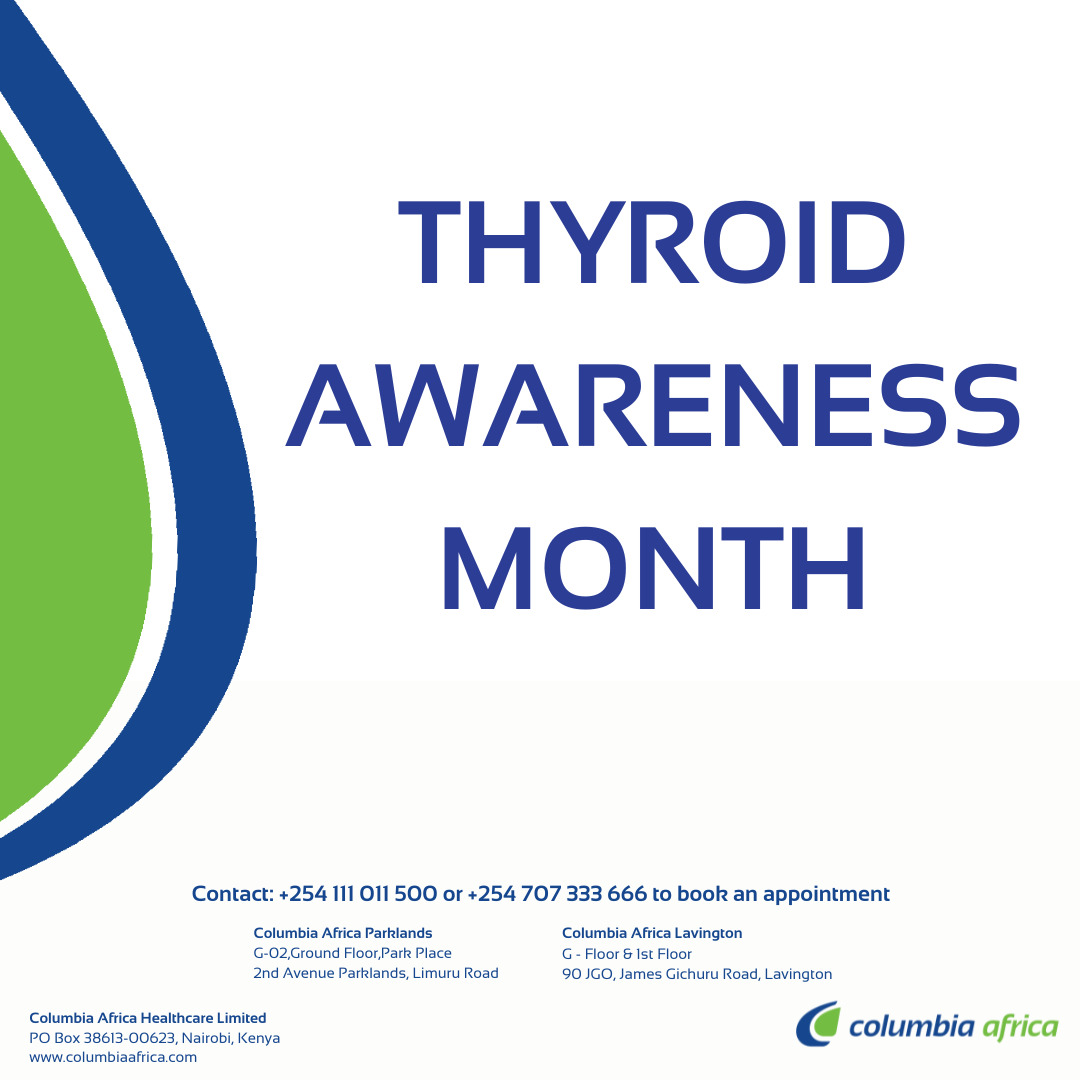
THYROID AWARENESS MONTH
Know Your Thyroid Gland
Plays a crucial role in regulating various bodily functions.
The thyroid gland is a butterfly-shaped organ located in the front of the neck, just below the Adam’s apple.
It produces hormones, primarily thyroxine (T4) and triiodothyronine (T3), which regulate metabolism and influence various body functions.
Thyroid Disorders includes:
- Hypothyroidism which occurs when the thyroid gland does not produce enough hormones. Symptoms may include fatigue, weight gain, cold sensitivity, and depression.
- Hyperthyroidism which results from an overactive thyroid gland, leading to an excess of thyroid hormones. Symptoms may include weight loss, increased heart rate, anxiety, and heat sensitivity.
- Thyroid Nodules which is abnormal growths or lumps in the thyroid gland that can be benign or cancerous.
These disorders may be due to:
- Autoimmune Diseases in conditions like Hashimoto’s thyroiditis (hypothyroidism) and Graves’ disease (hyperthyroidism) are caused by the immune system attacking the thyroid.
- Iodine Deficiency which results from inadequate intake of iodine, an essential mineral for thyroid hormone production, can lead to thyroid problems.
- Genetic Factors where thyroid disorders run in families.
Thyroid Tests include:
- Blood tests, including TSH (Thyroid Stimulating Hormone), T4, and T3 levels, are commonly used to assess thyroid function.
- Thyroid ultrasound and other imaging techniques can help evaluate the structure of the thyroid gland.
Prevention include:
- Maintaining a balanced diet with sufficient iodine intake.
- Regularly monitor thyroid function through blood tests, especially if there is a family history of thyroid disorders.
- Avoid smoking, as it increases the risk of thyroid problems.
Thyroid Cancer Awareness:
Thyroid nodules are common, and most are benign. However, it’s important to be aware of the signs of thyroid cancer, including changes in the size or appearance of the thyroid gland and difficulty swallowing.
Regular Check-ups:
If you experience symptoms related to thyroid disorders or have risk factors, it’s essential to consult with a healthcare professional for appropriate evaluation and management.
Thyroid awareness involves understanding the importance of thyroid function, recognizing symptoms of thyroid disorders, and seeking medical attention for proper diagnosis and treatment. Regular check-ups and communication with healthcare providers are crucial for maintaining thyroid health.





